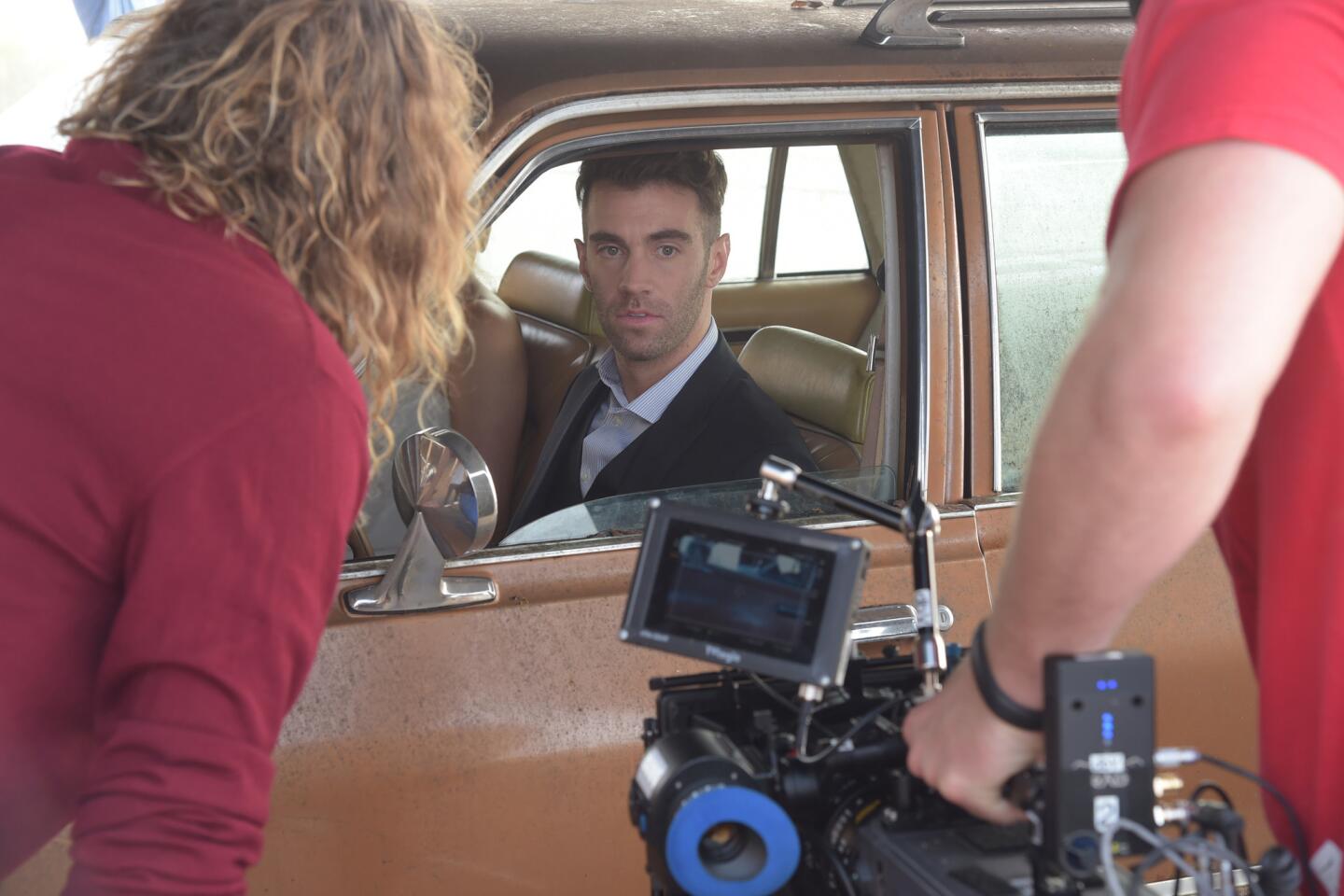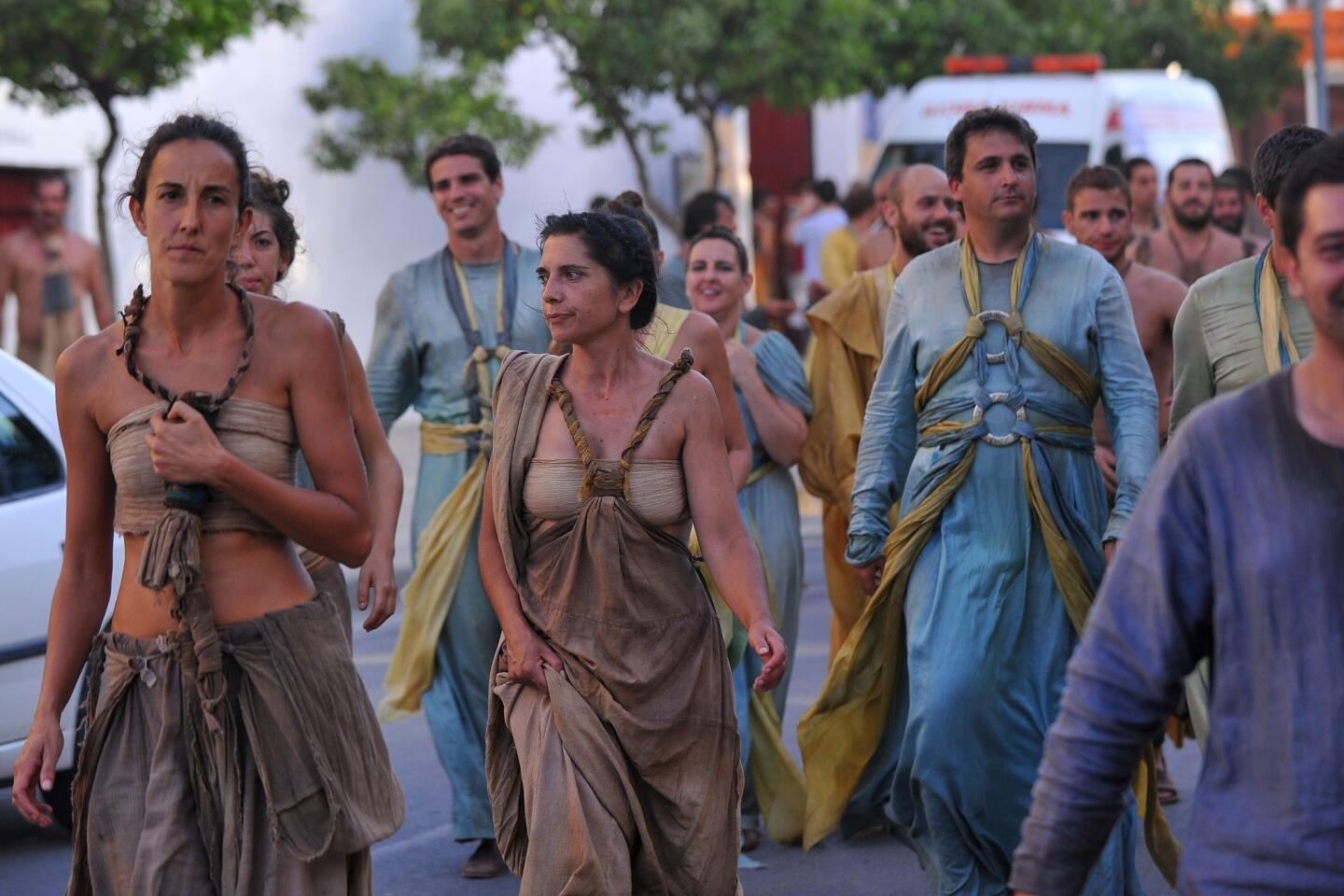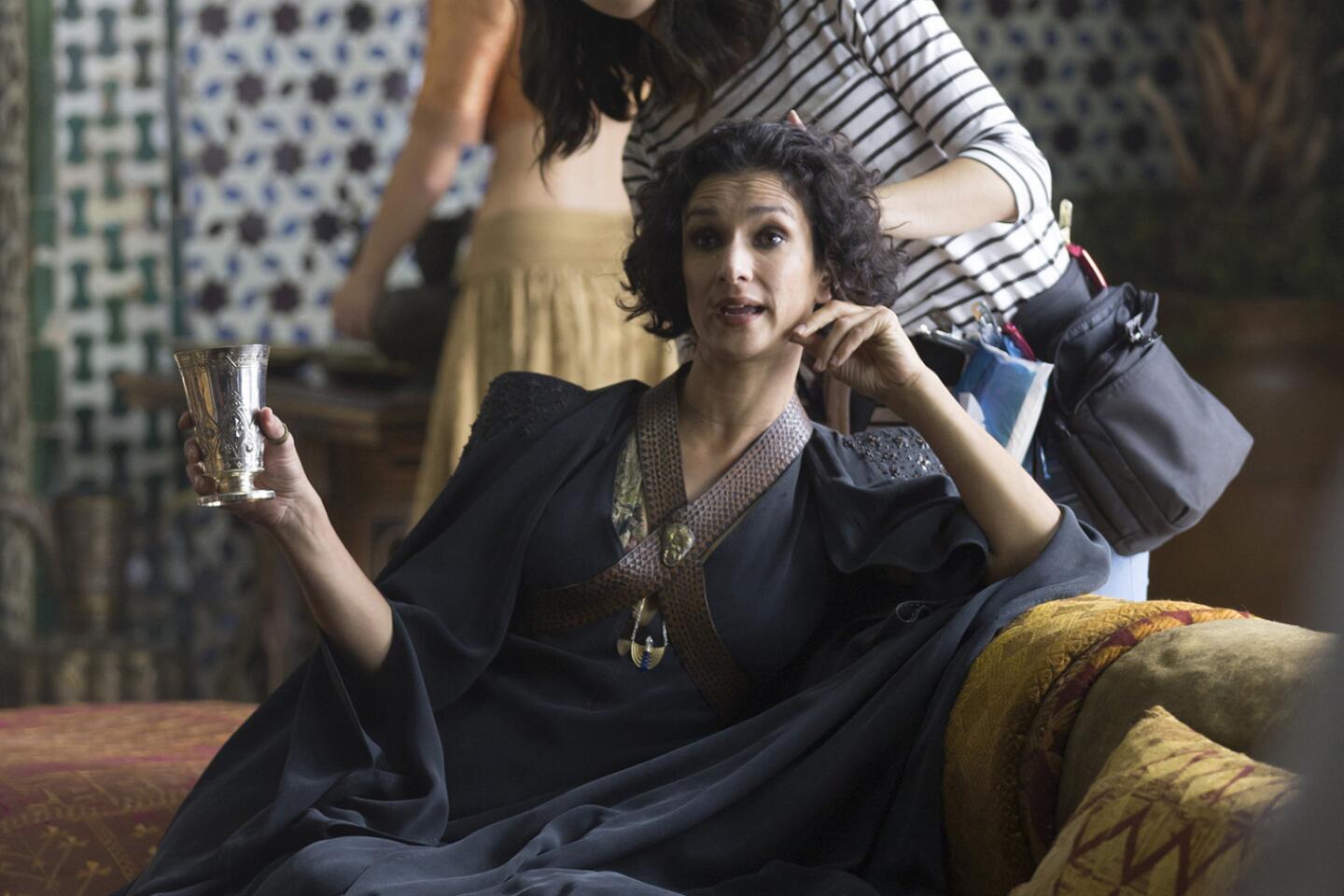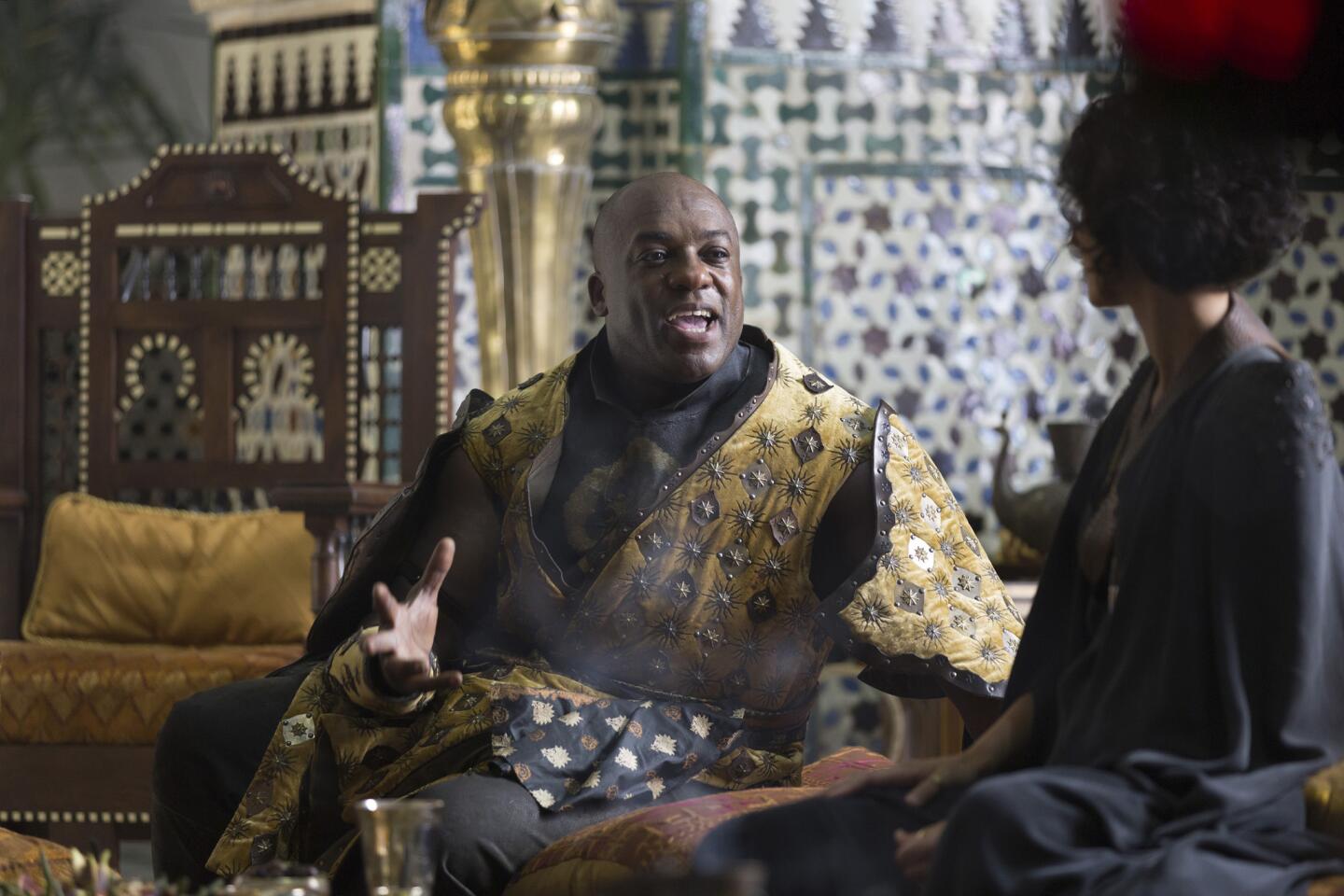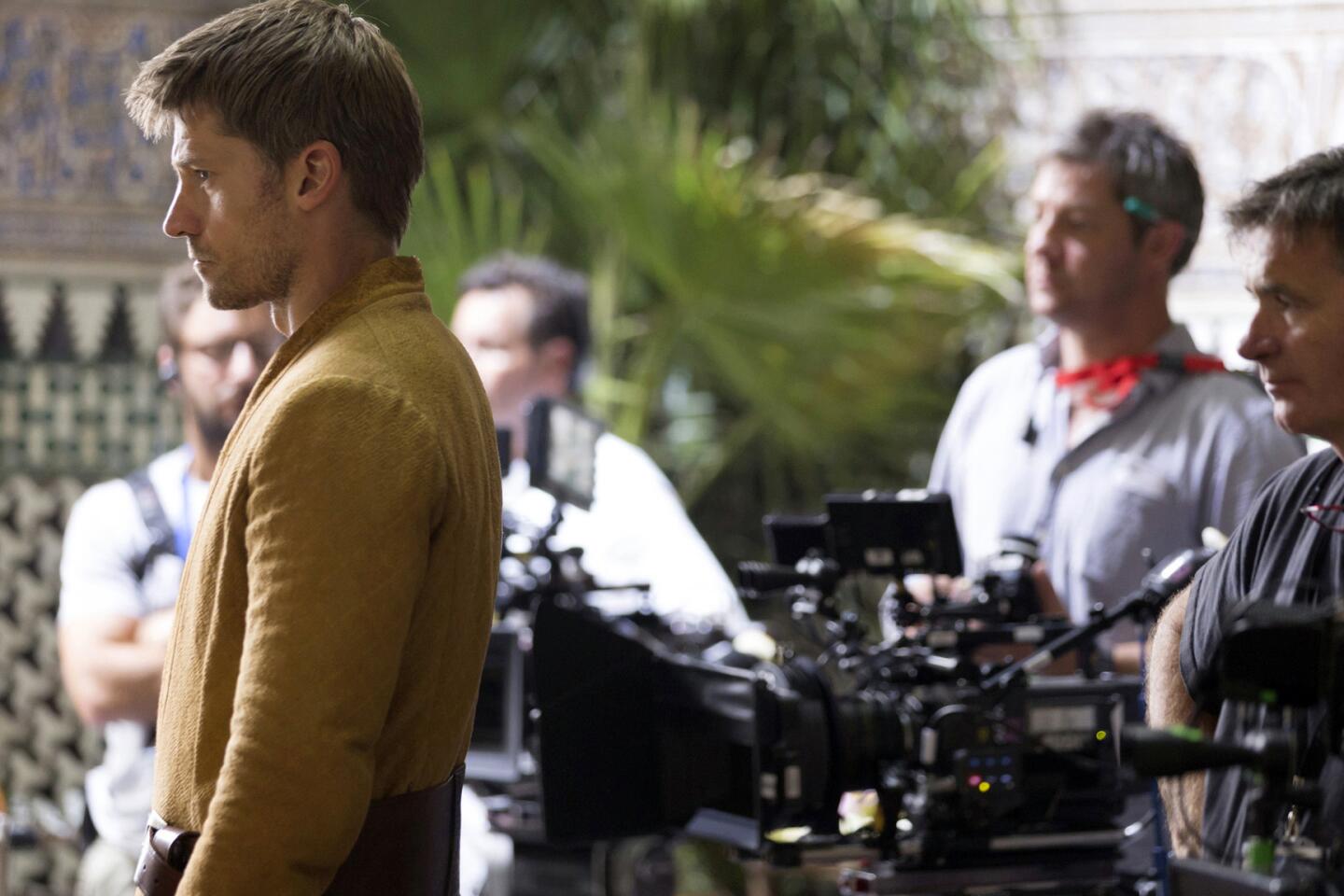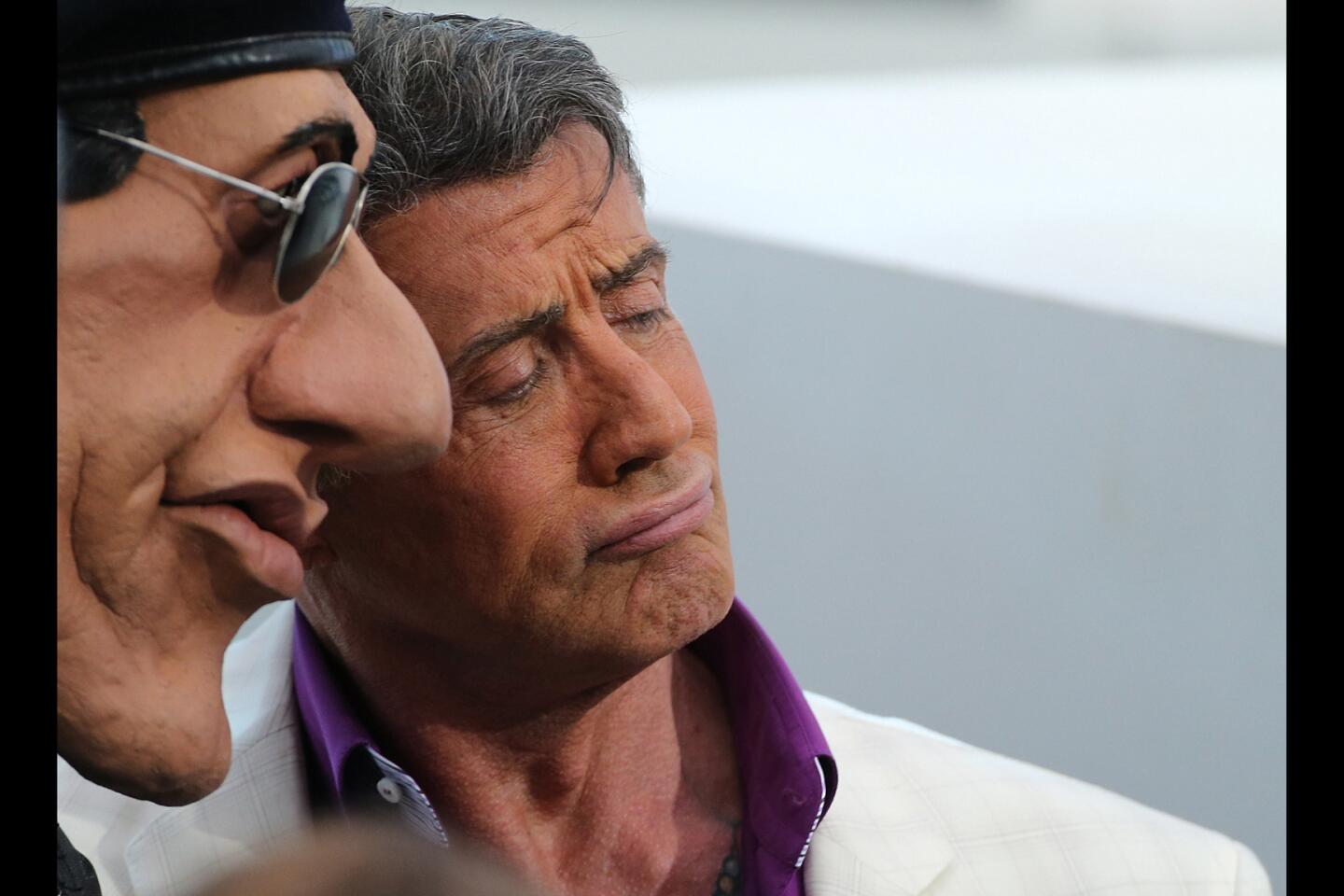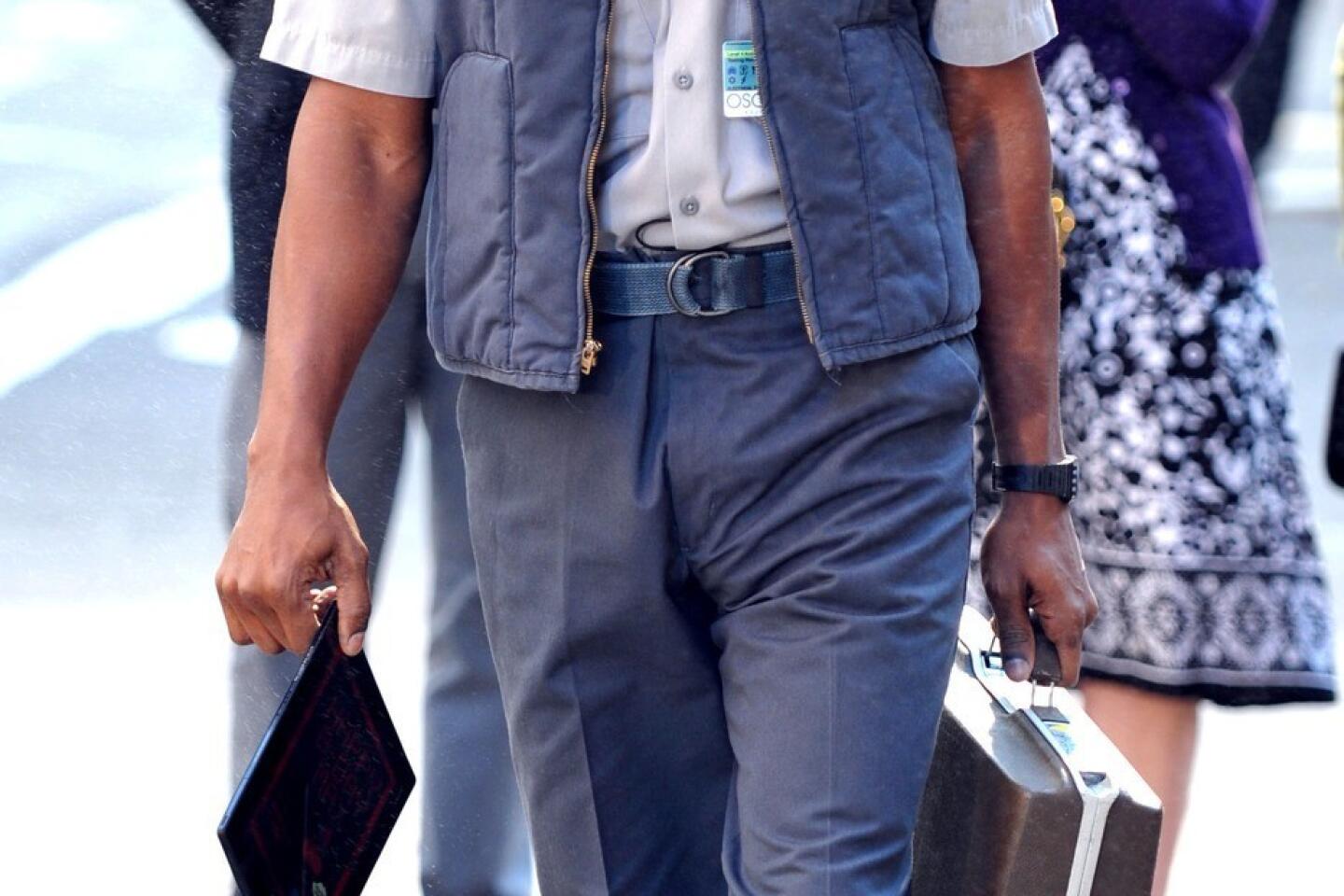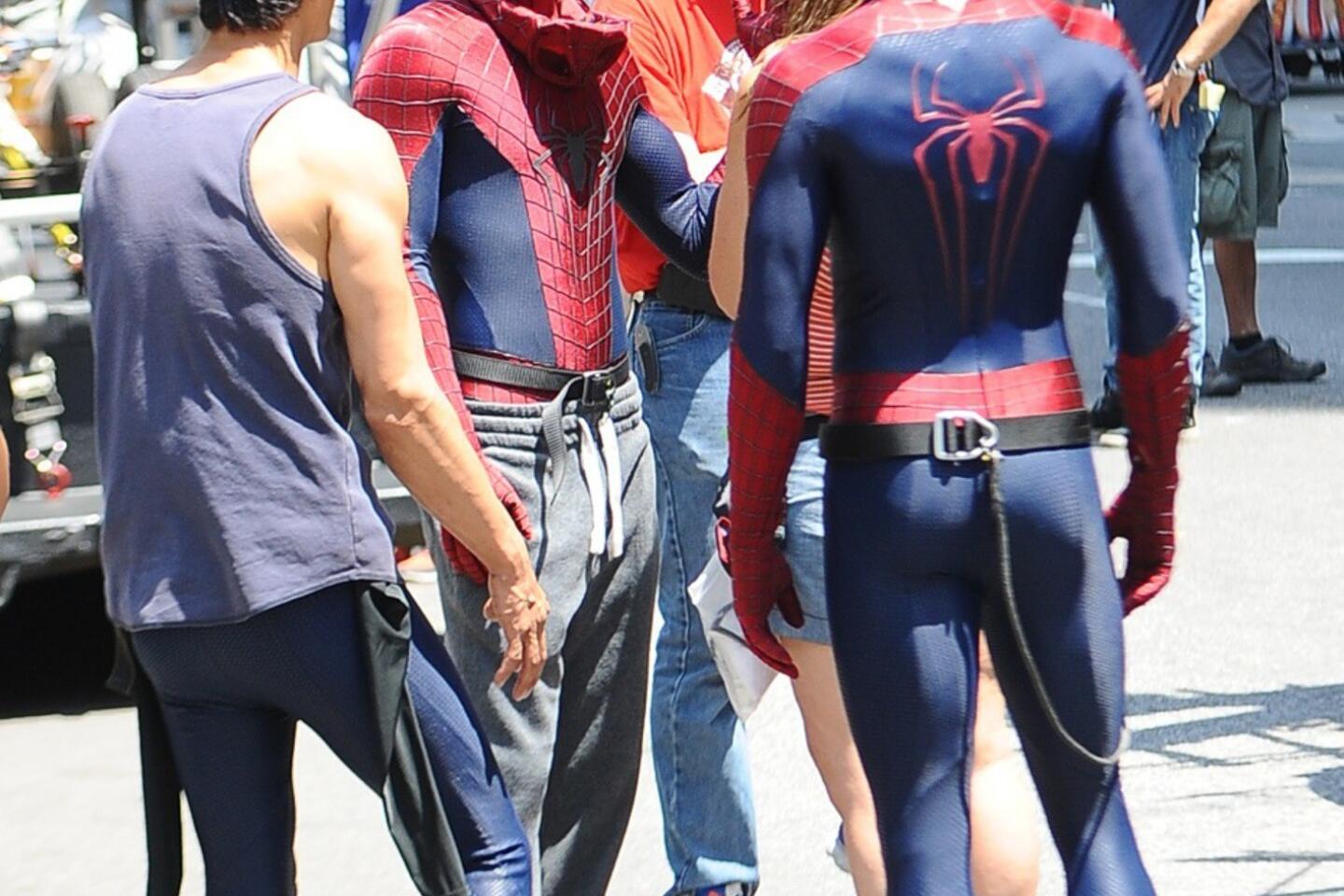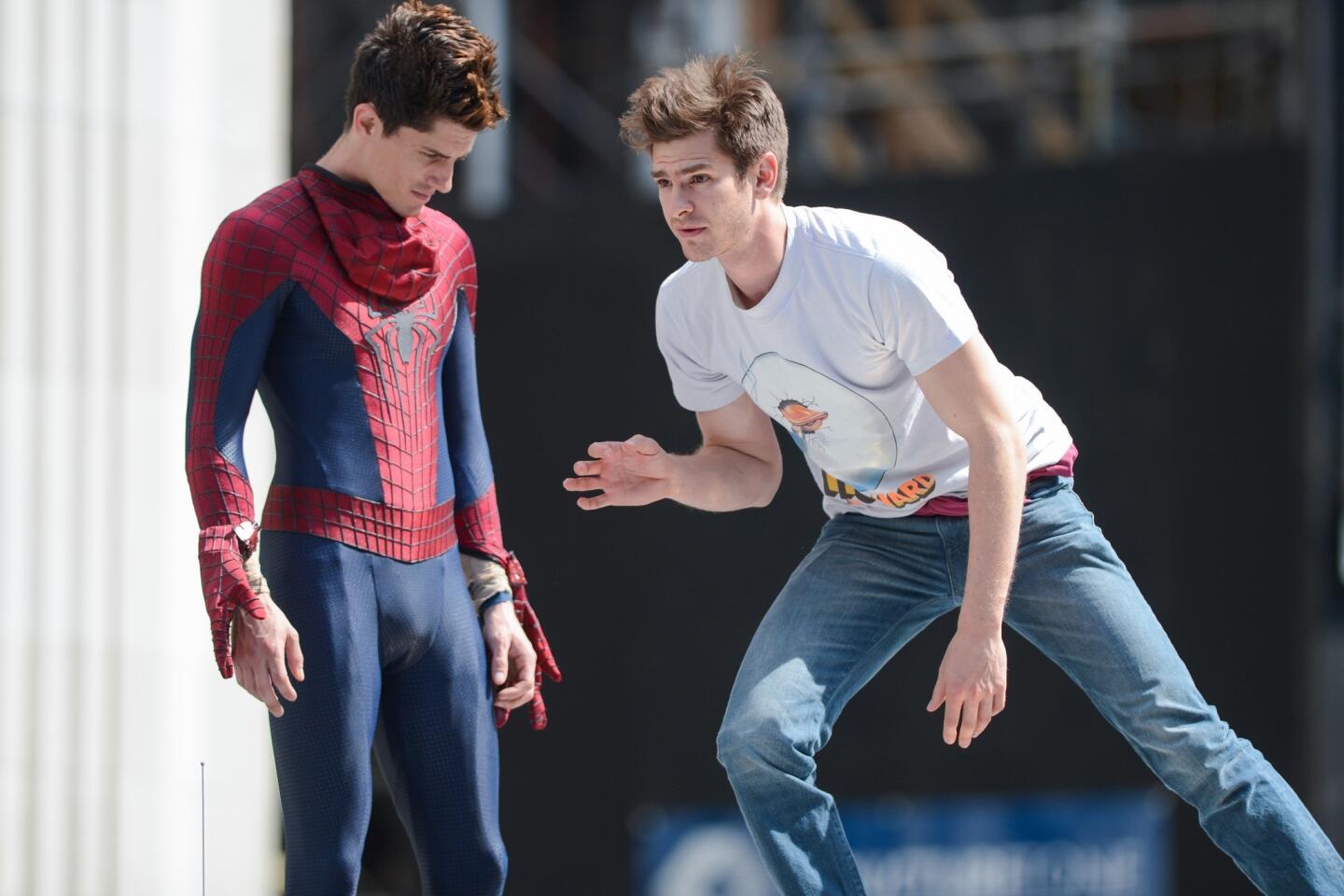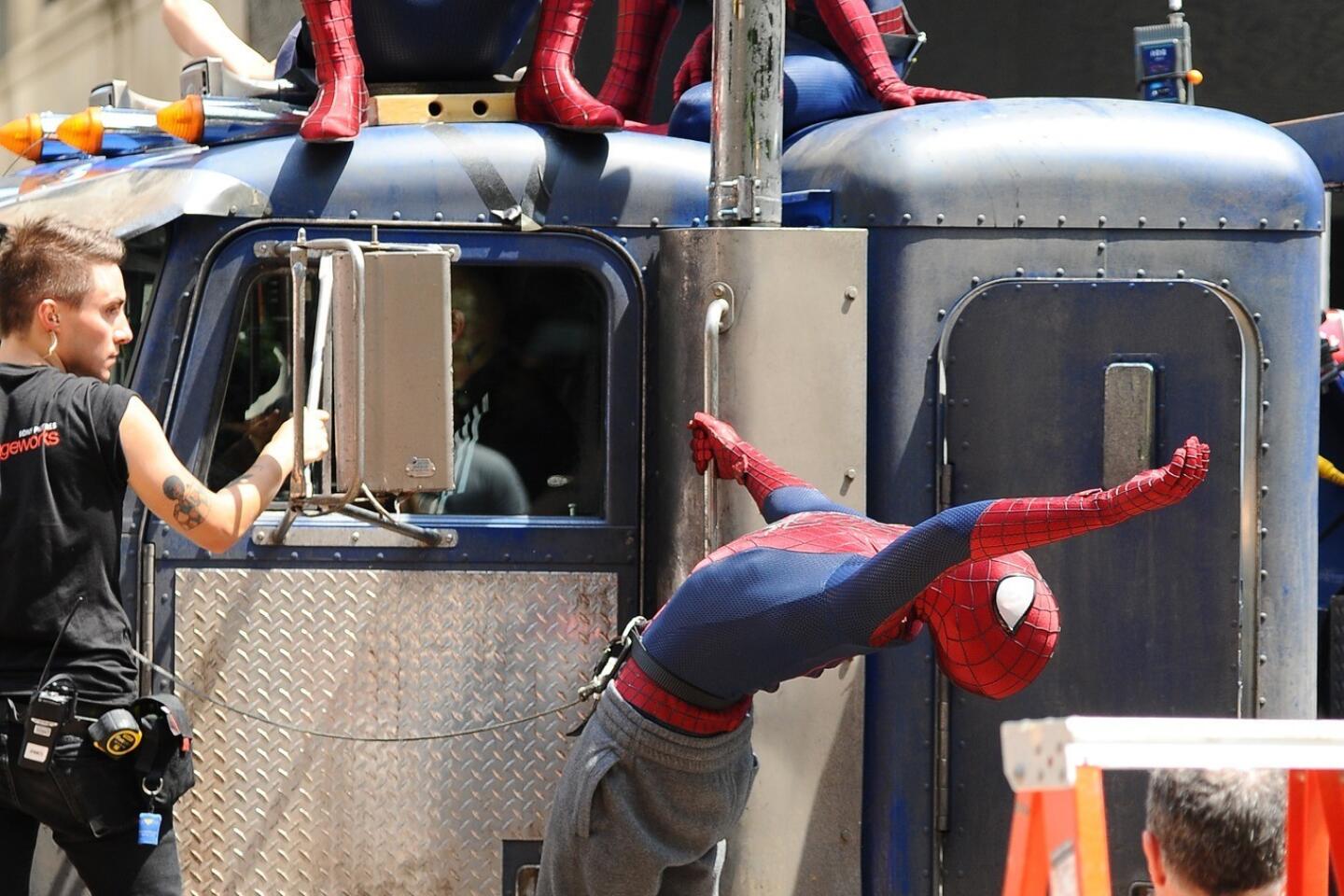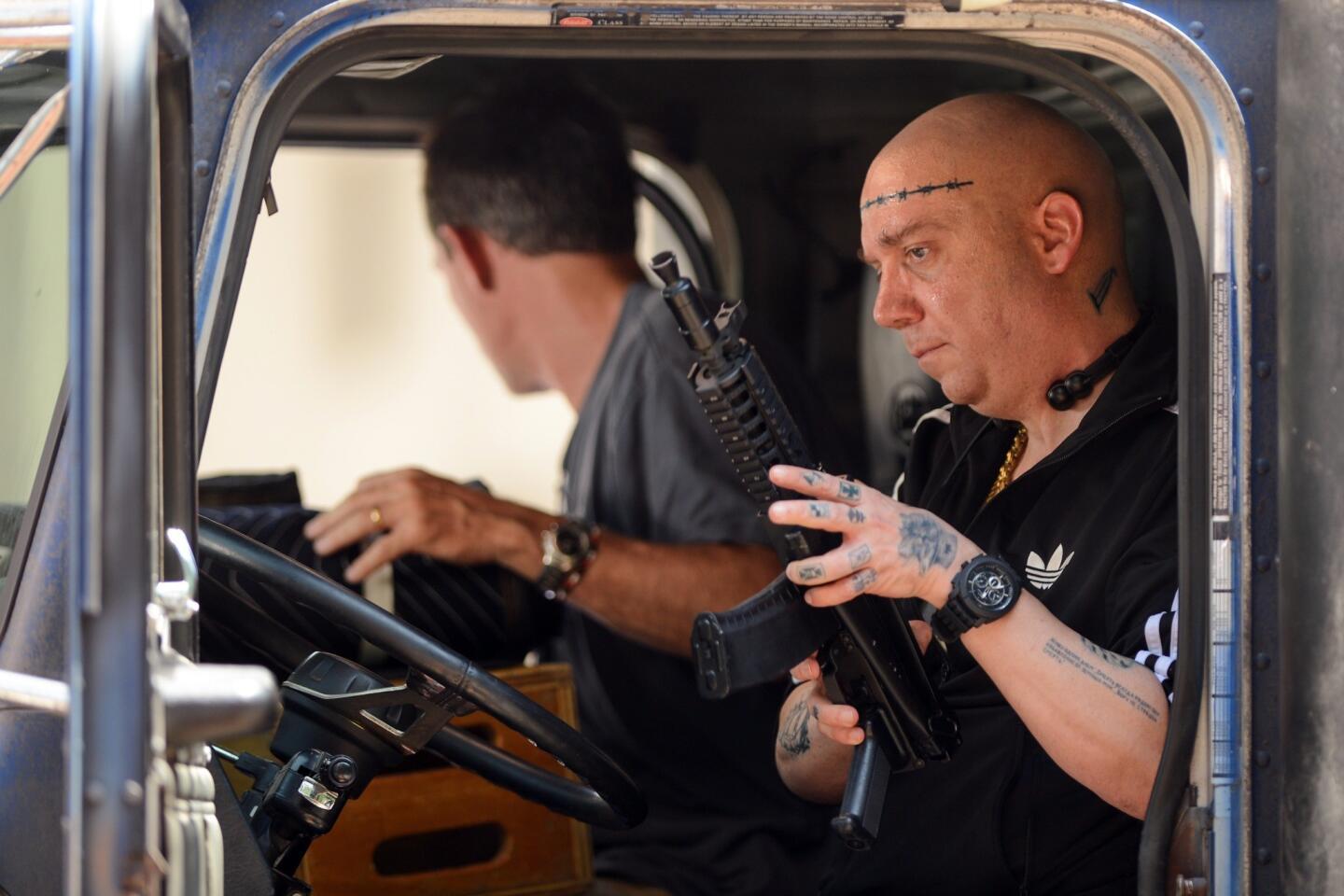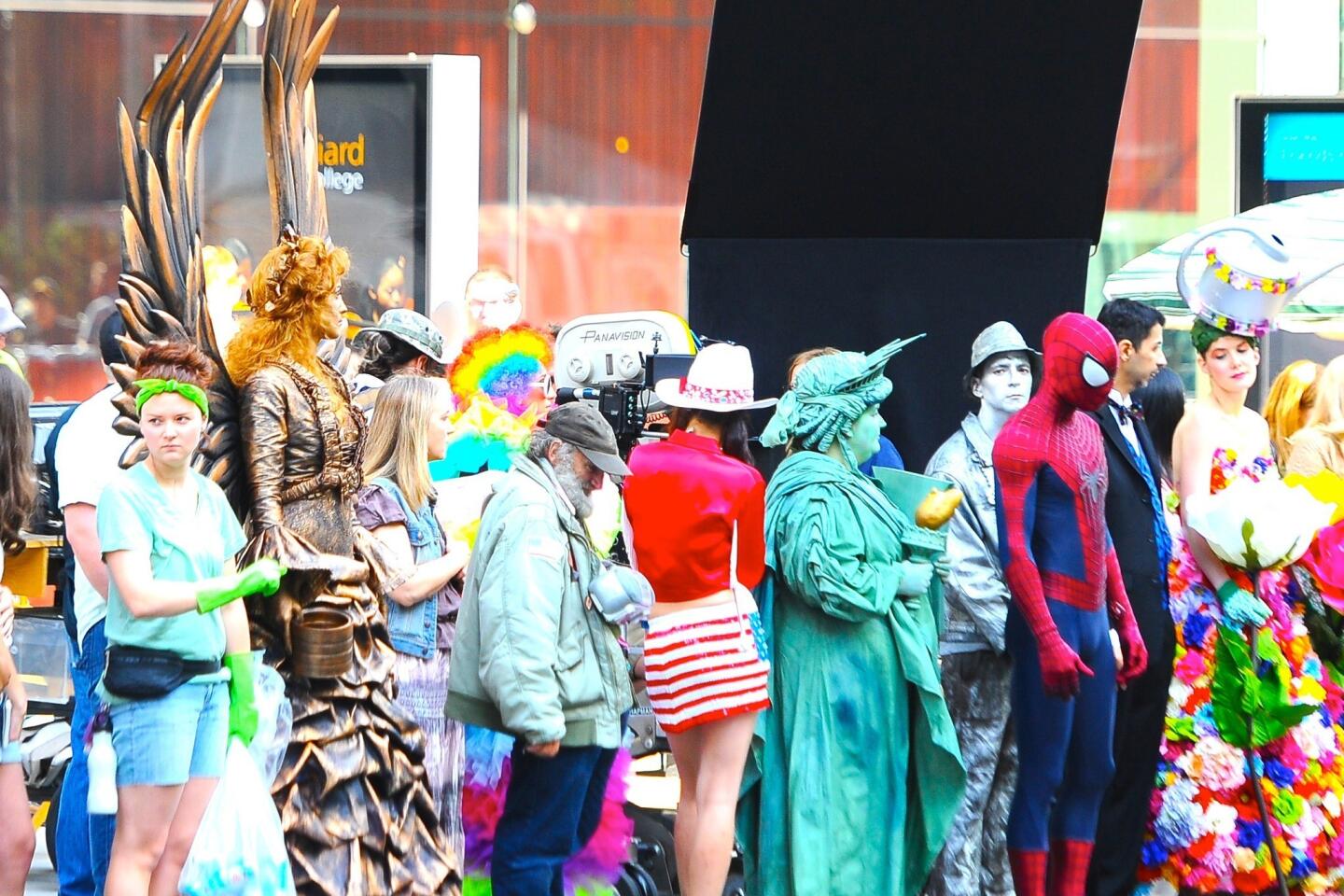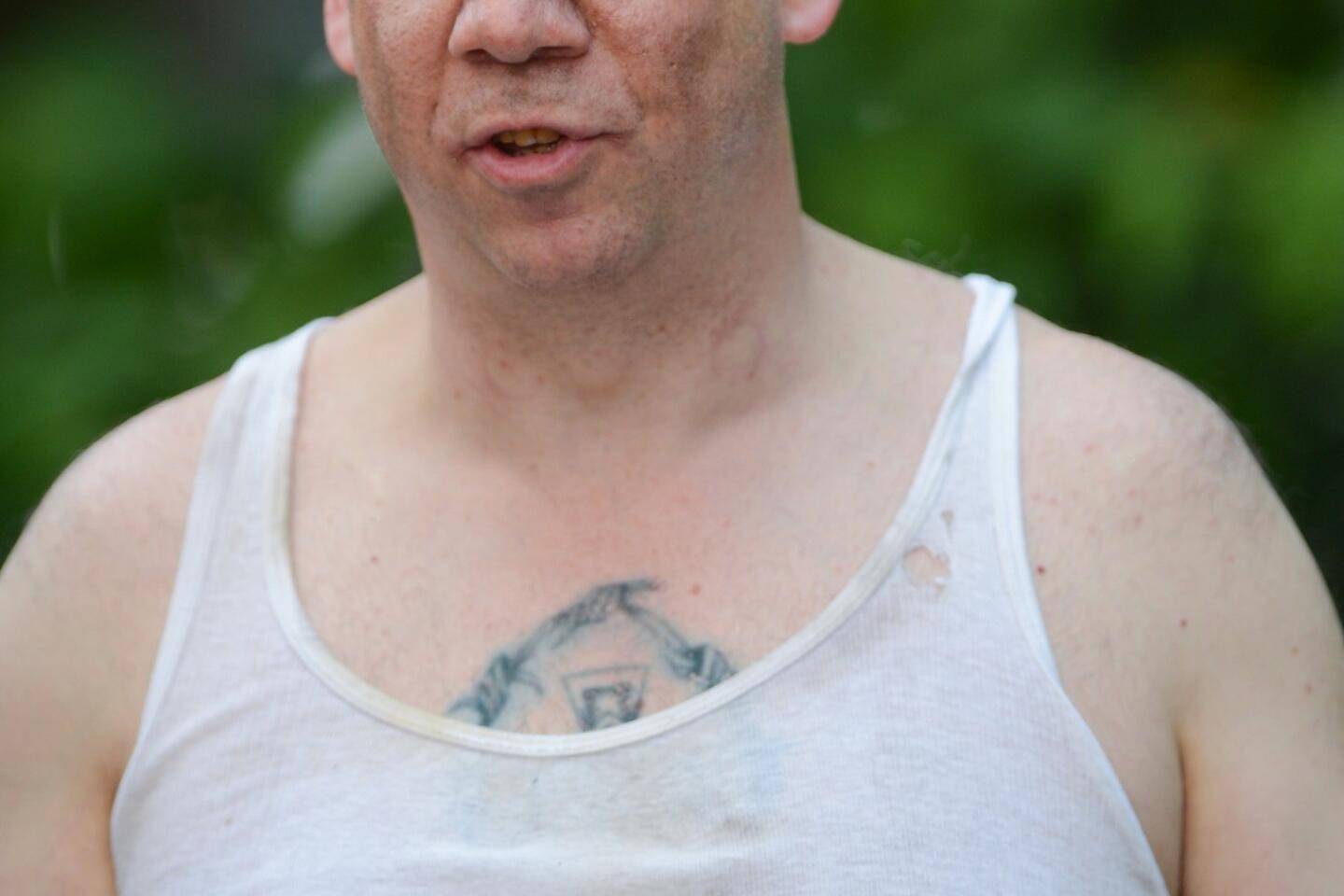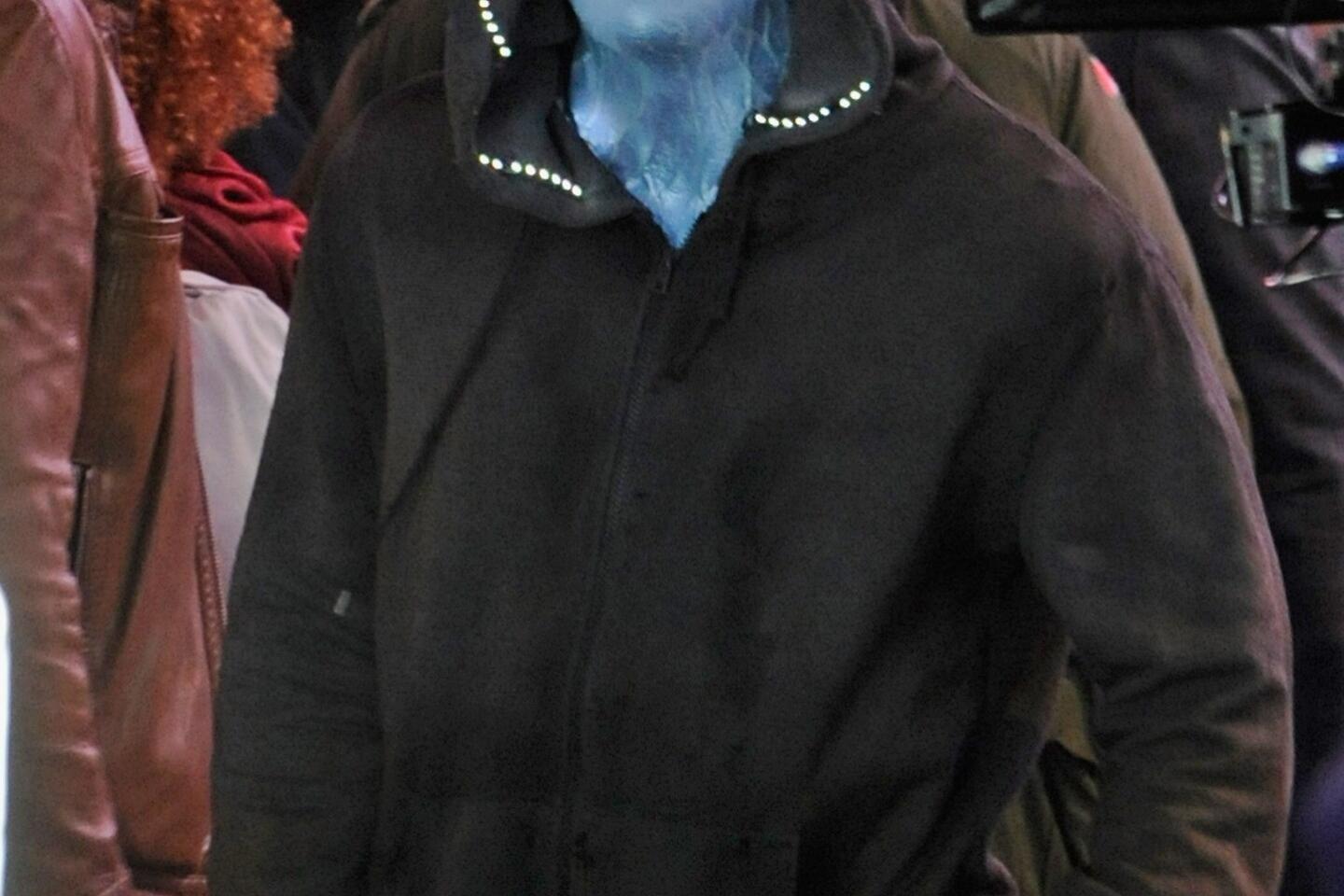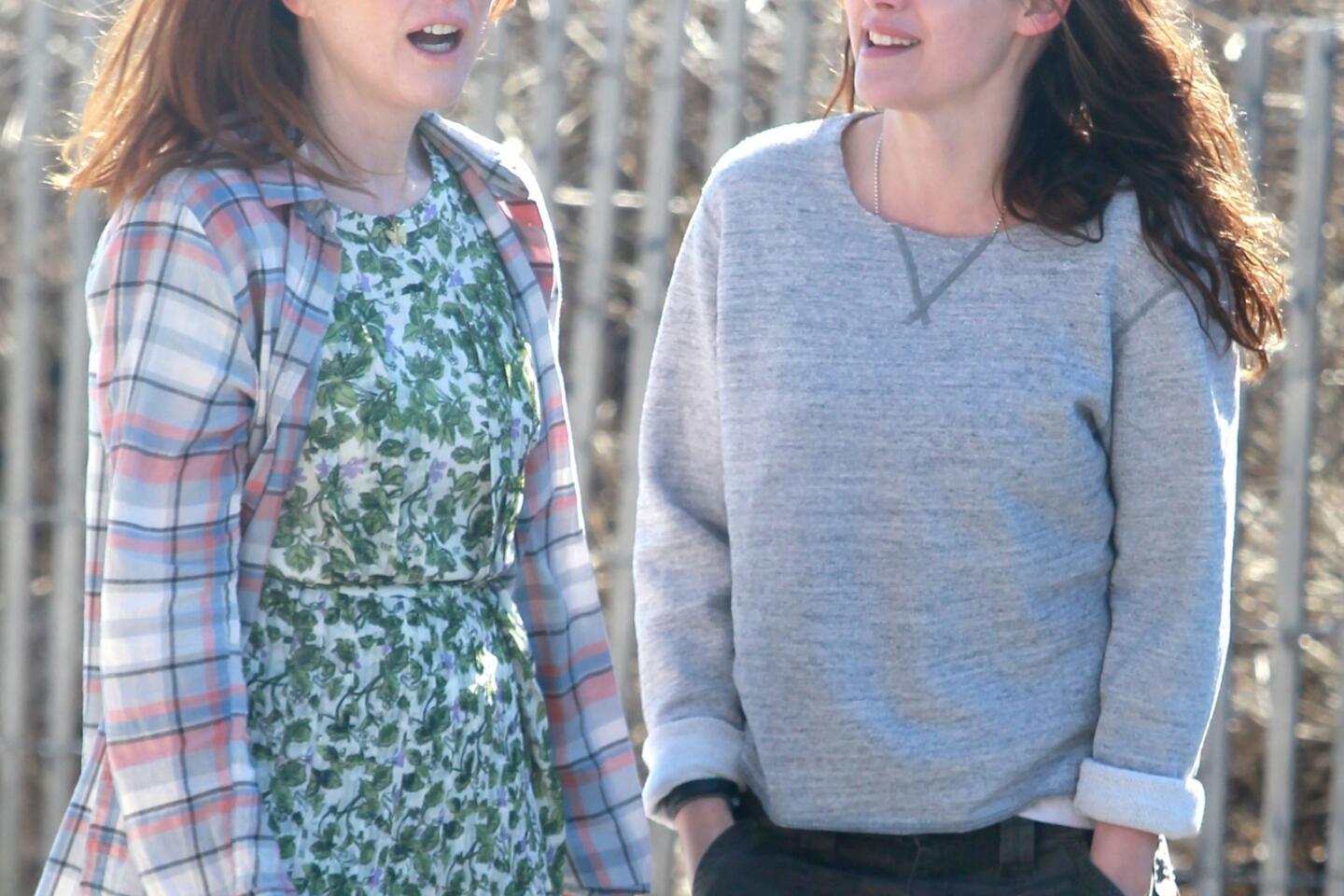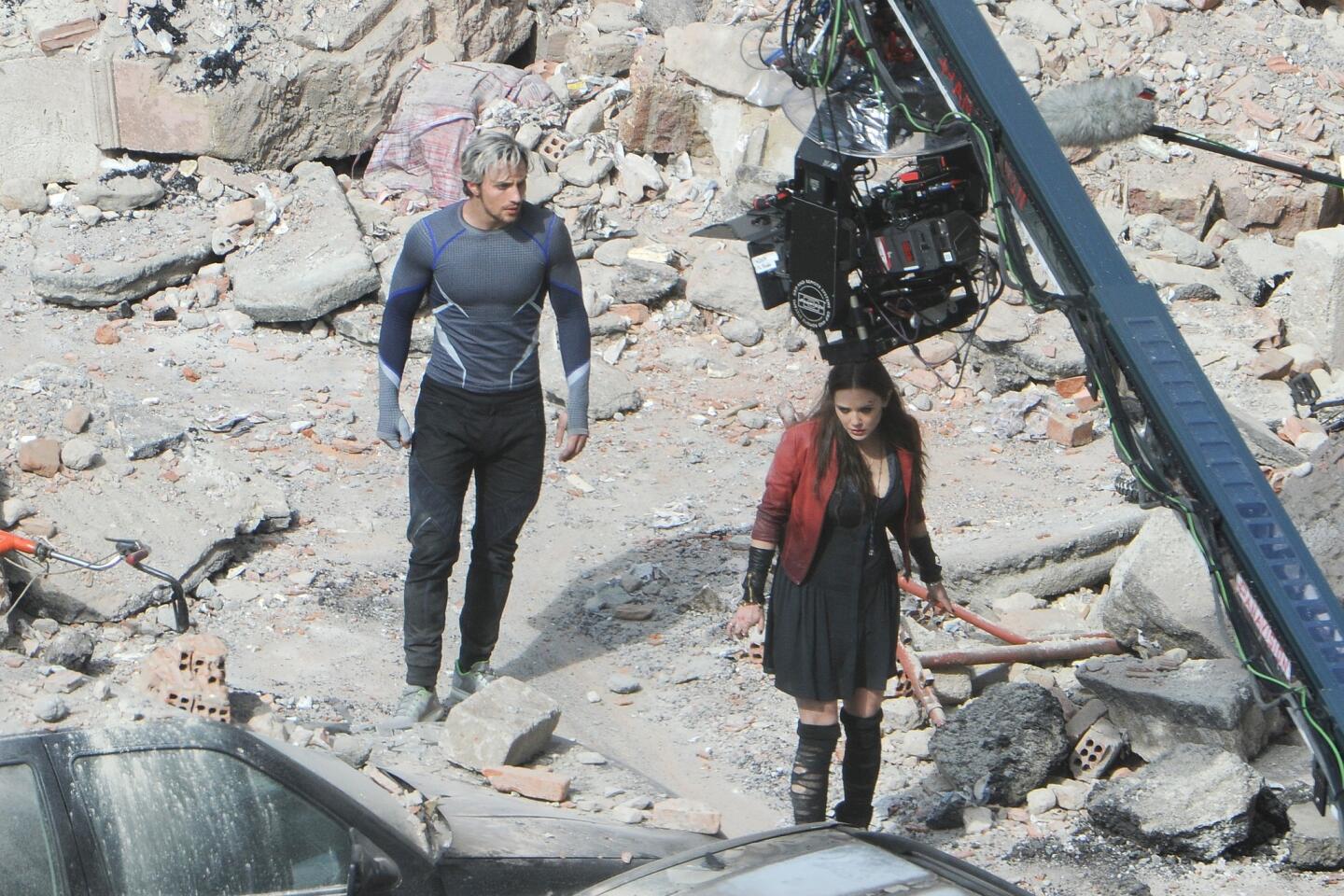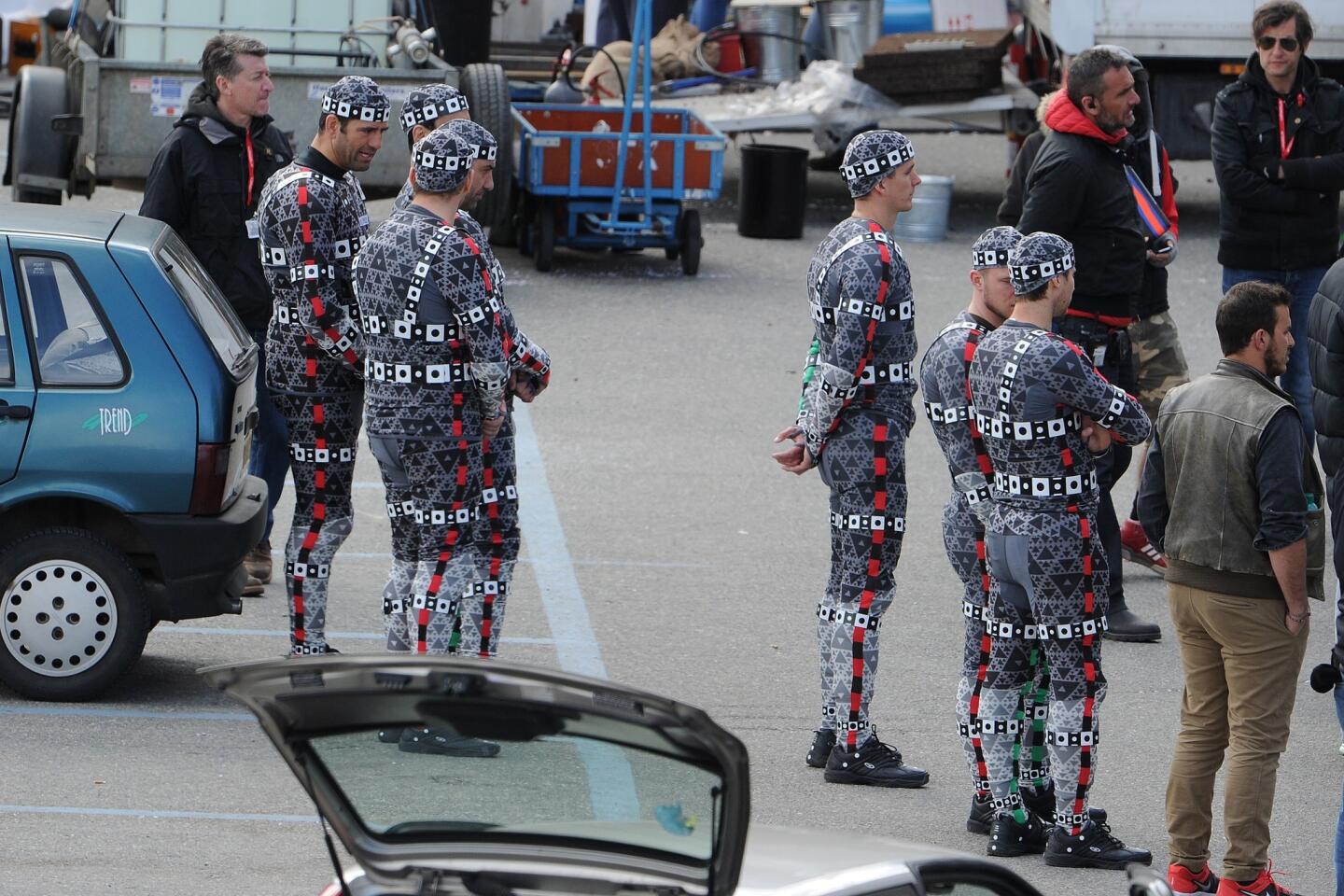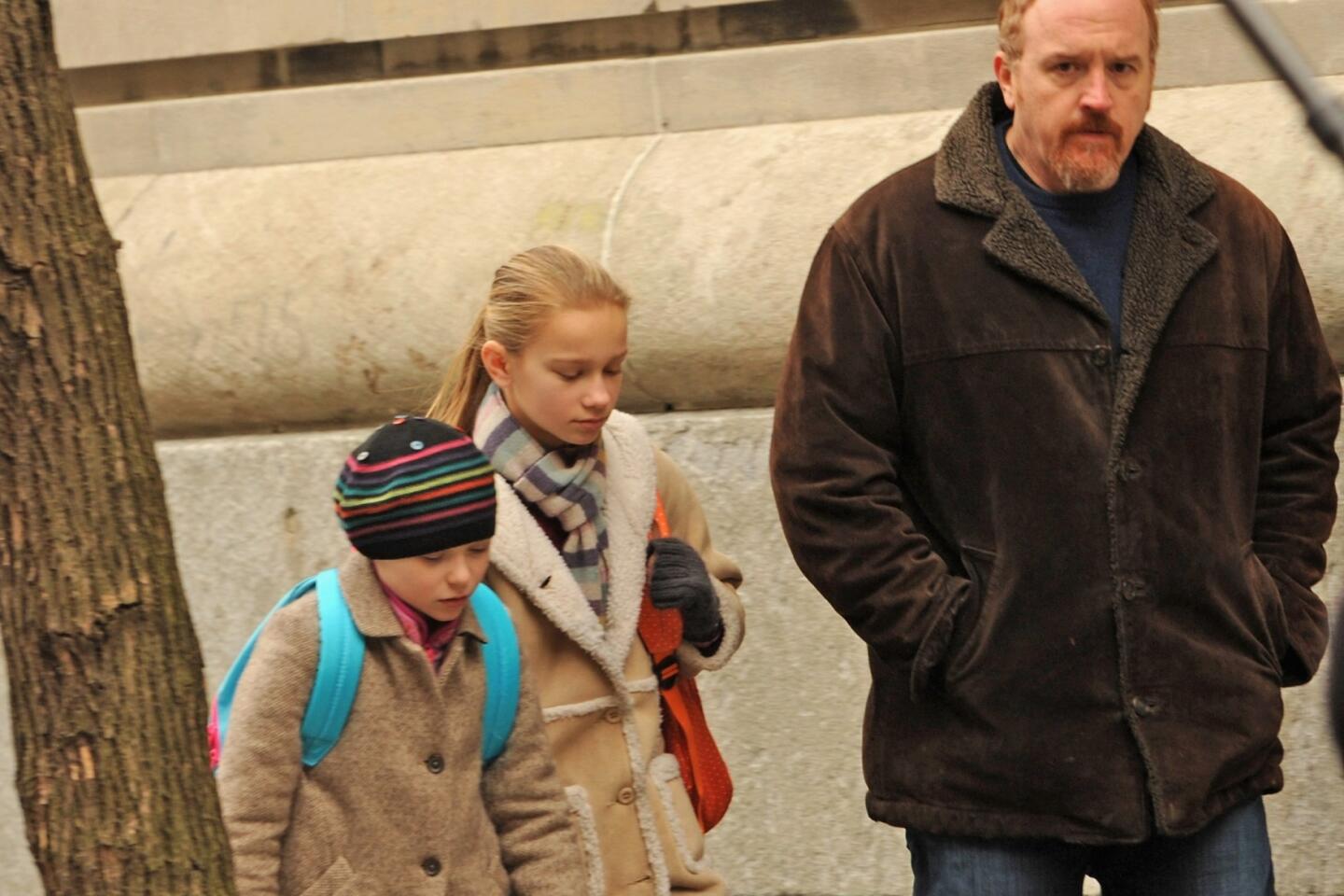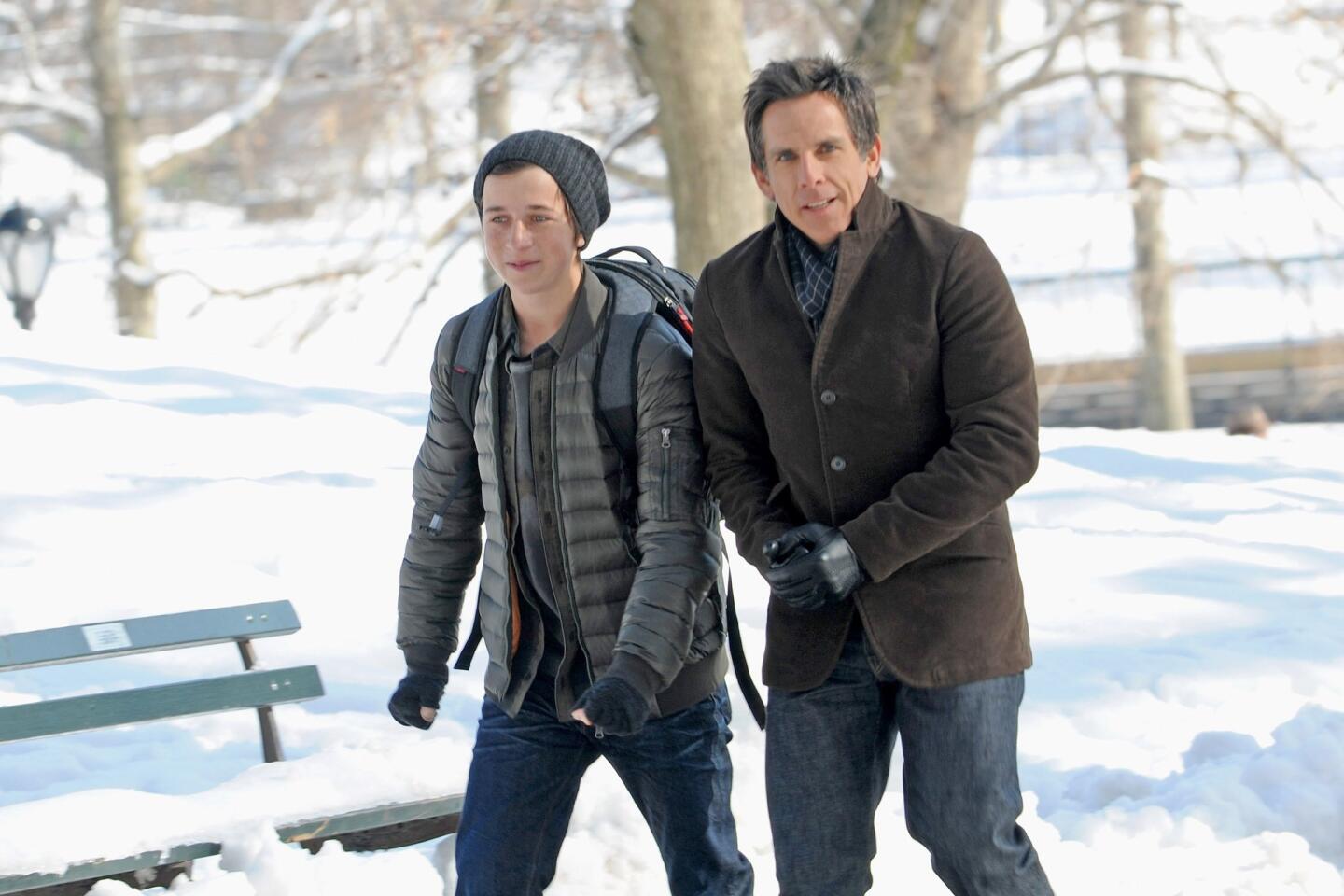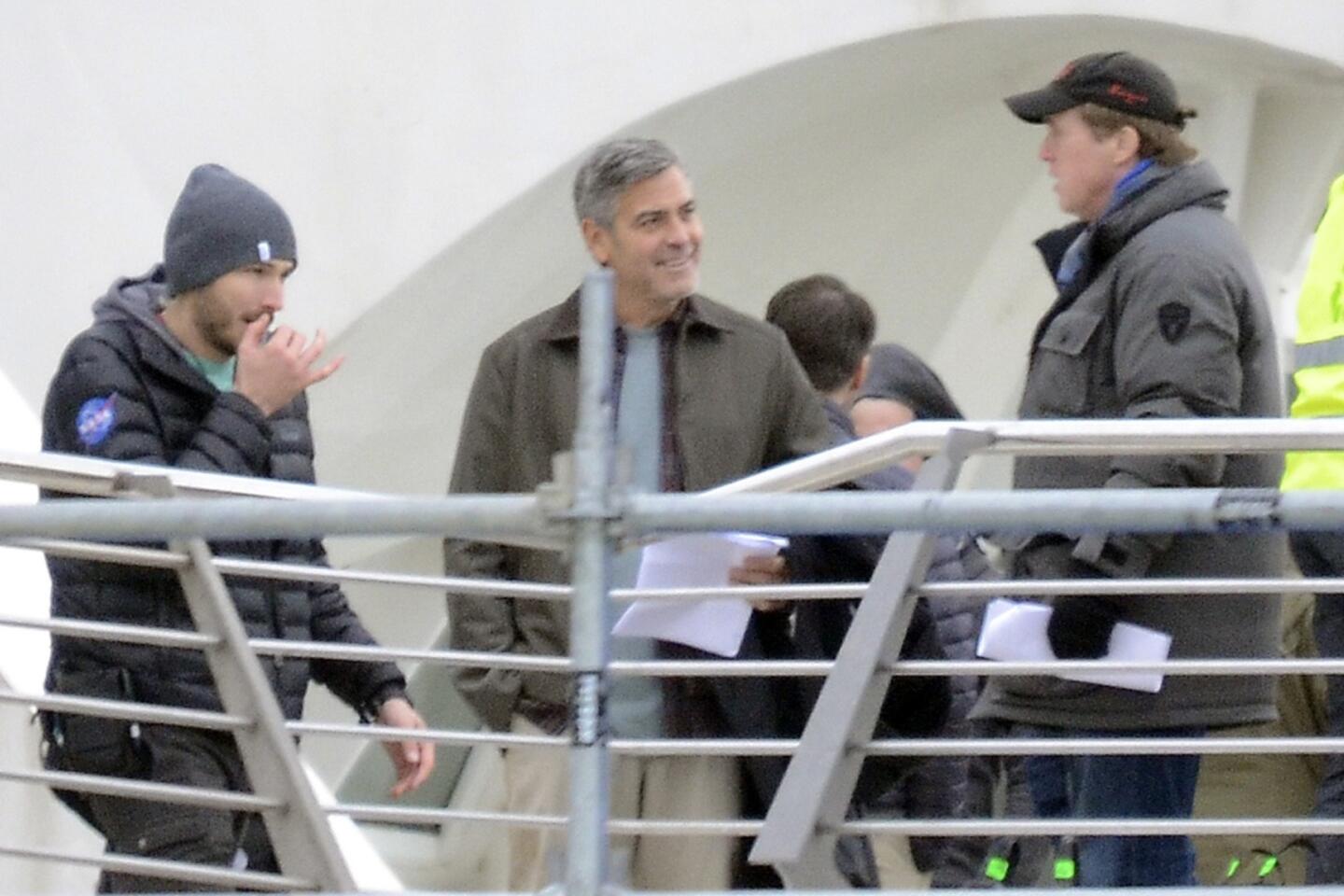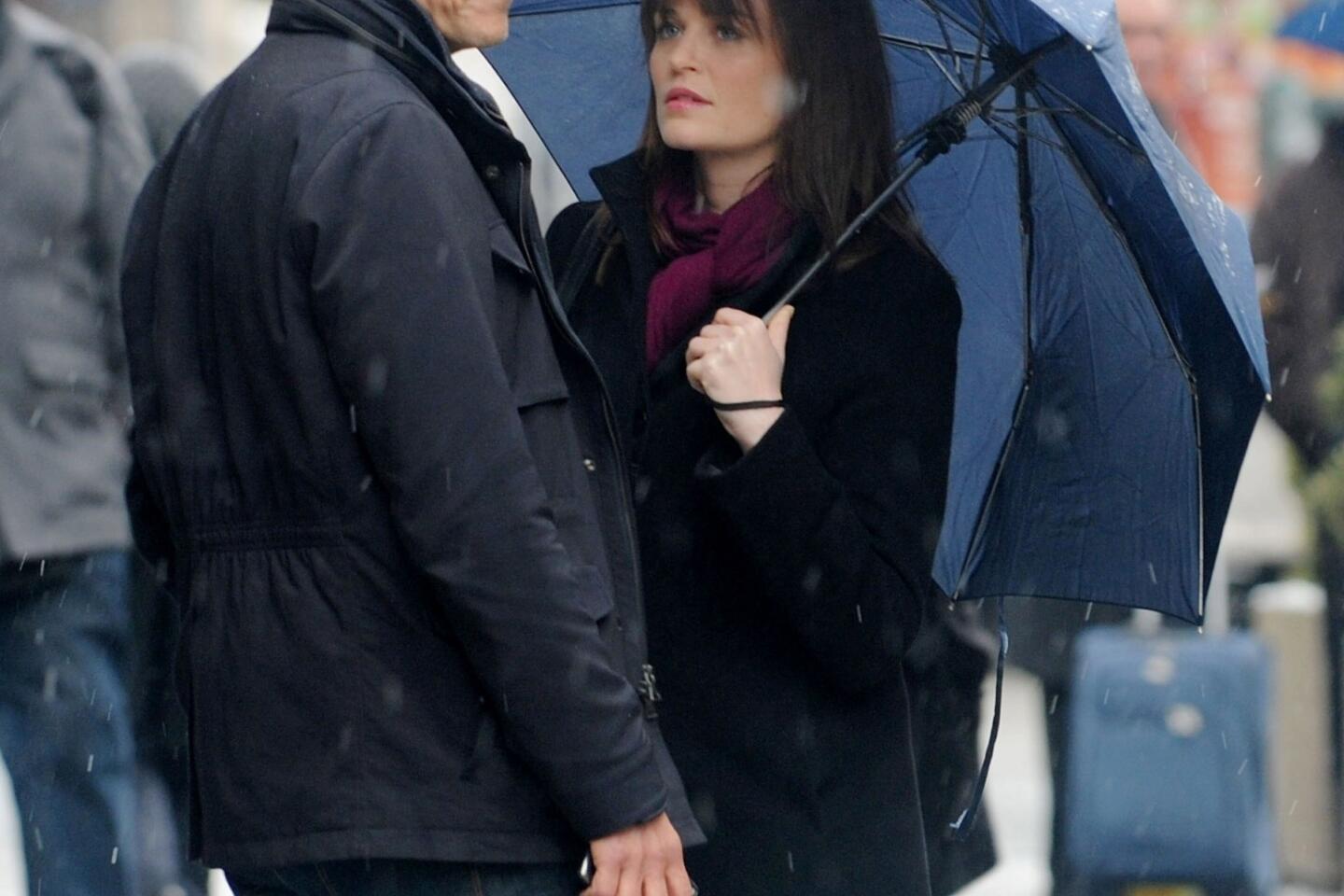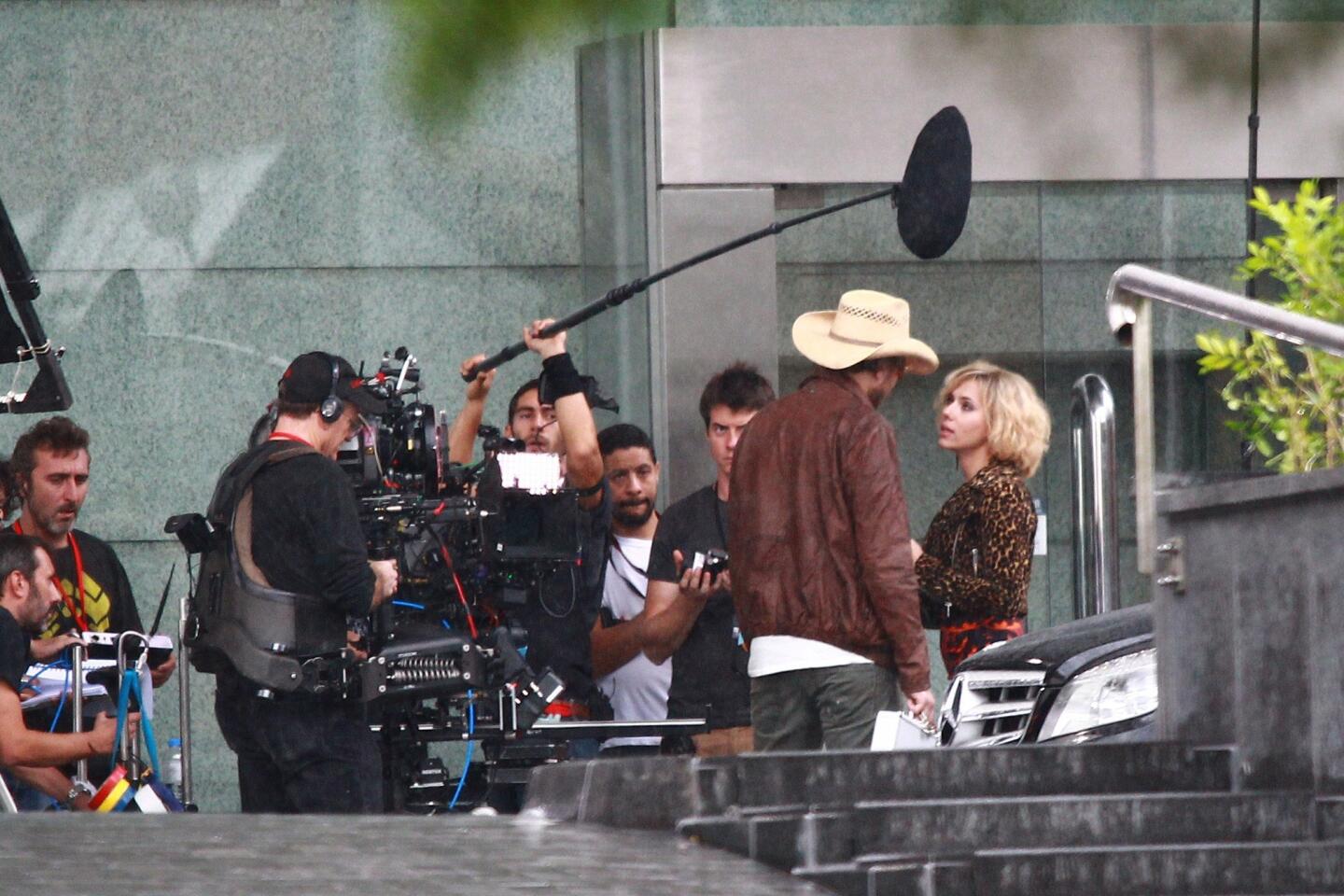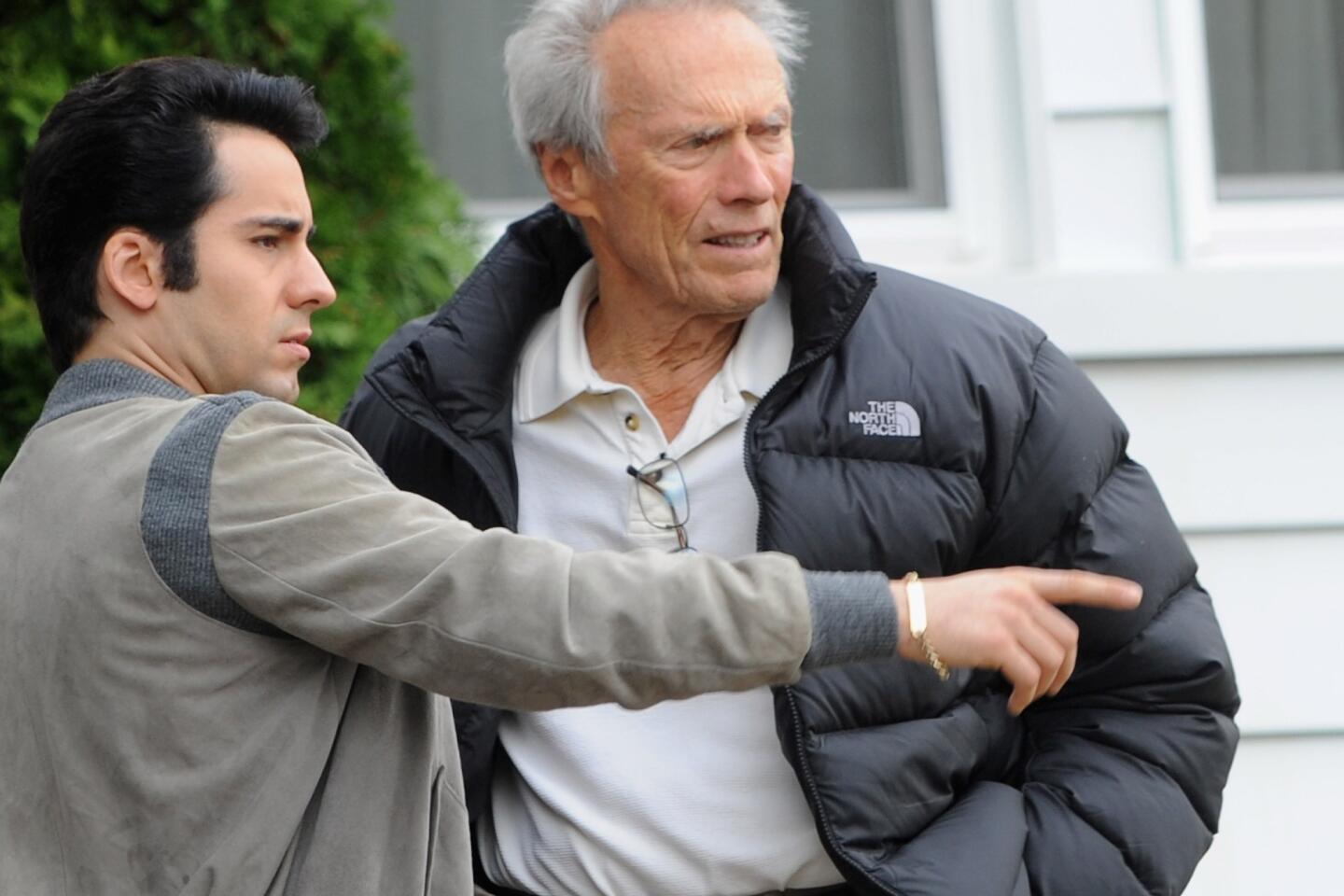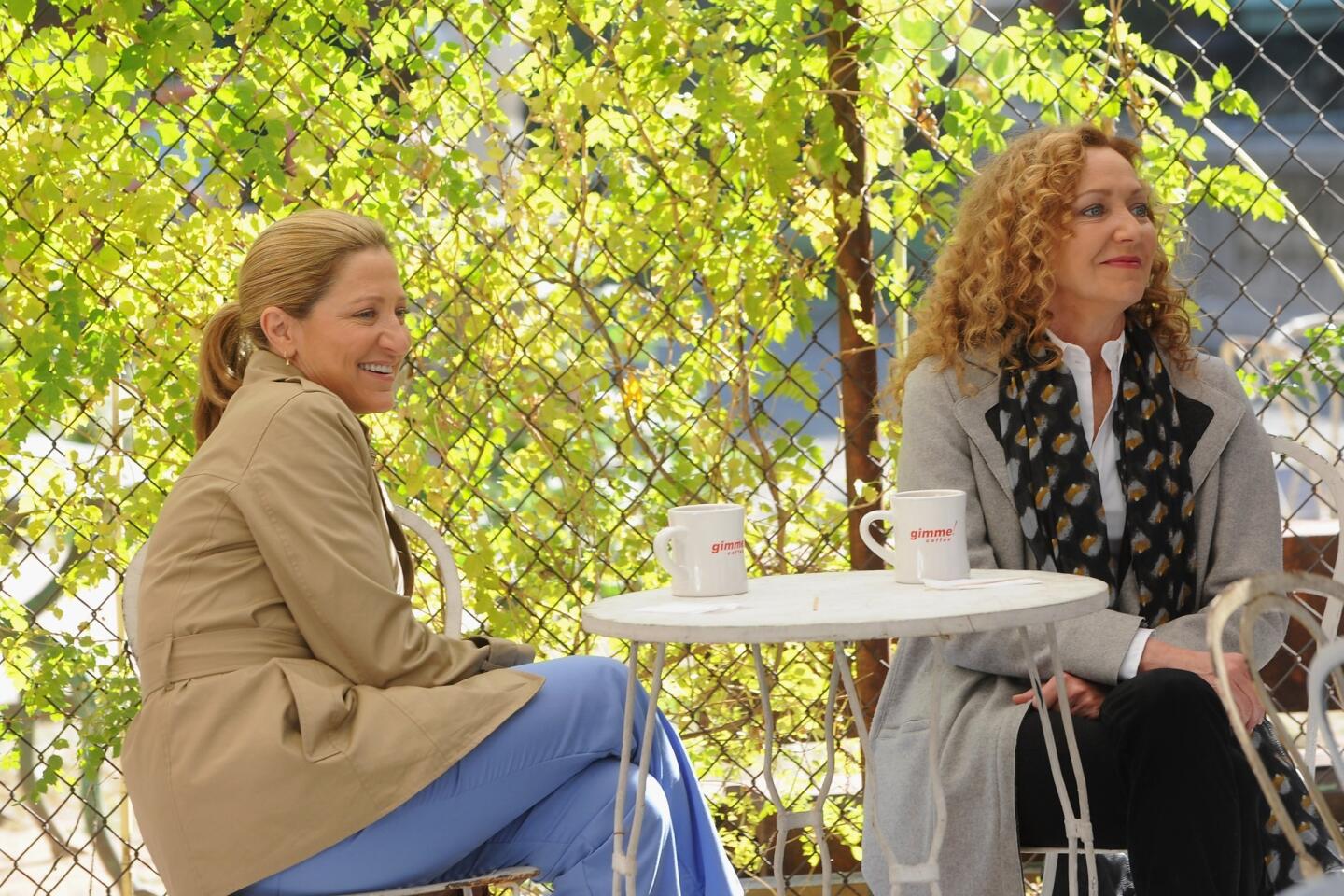The strength of Afghan women unveiled in ‘Patience Stone’
- Share via
The patience stone (syngue sabour) of Persian mythology is a magical black stone that receives the problems of those who confide in it. According to myth, when the stone has absorbed all the pain and suffering of the person, it will shatter and free the individual from his or her woes.
In writer-director Atiq Rahimi’s new film, “The Patience Stone,” which opens Friday, the legendary object takes the form of the comatose husband of a Muslim woman (Iranian actress Golshifteh Farahani) living in an unnamed Middle Eastern country that’s in the midst of an insurrection.
FOR THE RECORD:
The Patience Stone”: An article about “The Patience Stone” in the Aug. 15 Calendar section said the film’s star, Golshifteh Farahani, had appeared in Ridley Scott’s 2008 thriller “Body of Proof.” The title is “Body of Lies.” —
She holds vigil in their bedroom, tending to her much older warrior husband, who has taken a bullet to the neck. Abandoned by his brothers and fellow jihadists, it’s up to her to hide him from prowling soldiers and protect him and her two young daughters from bomb attacks. As time passes, she begins to tell his inert body about her dreams, desires and how abusive he has been to her during their loveless marriage.
PHOTOS: Celebrities by The Times
“Afghani women have a lot of strength, but they are also very shy and guarded,” said the Parisian-based Afghan filmmaker who fled his homeland in 1985 during the country’s war with the Soviet Union but travels back to visit frequently. “It is almost impossible to break that. But they will be very strong inside their homes.”
With “The Patience Stone,” he said, “I wanted to show their bodies, their dreams, their strengths, their desires. They are all very courageous.”
Based on Rahimi’s 2008 novel, “Patience Stone” was adapted by Rahimi and his friend screenwriter Jean-Claude Carriere and was shot primarily in Morocco. The filmmaker took a skeleton crew to Kabul for some exterior scenes.
“What really changed between the book and the film is the point of view,” Rahimi, 51, said during a visit to Los Angeles for the L.A. Film Festival. Though he speaks English, he prefers French and used a translator during the interview at a Beverly Hills hotel. He’s an intense man with piercing violet eyes, thick black hair and goatee.
“In the book, the narrator stays in the bedroom,” he continued. “In the film, the camera really travels with the woman and goes places. Jean-Claude Carriere really knew how to get rid of the smaller things in the book that were not too essential — to just take a story and find the cinematic language of it.”
Ironically, when “Patience Stone,” which was Afghanistan’s submission for consideration for the 2012 foreign language film Oscar, opened last year in Kabul, more women than men criticized the film.
“It has to do with the sexuality,” the director said.
During the course of the film, Farahani’s character blossoms from a timid wife to a fully realized woman. She feels passion for the first time when she enters into an affair with a young soldier who mistakenly believes she’s a prostitute. She begins to kiss and caress her comatose husband in ways that she never did during their marriage. She even takes a break from her vigil by visiting her feisty aunt, who is a prostitute.
PHOTOS: Hollywood backlot moments
“They are against the fact that I showed prostitution,” the filmmaker said. “But I show prostitution as an allegory. Prostitution is a way for them to protect themselves from men. They create a protection that uses the weakness of men against themselves.”
One of her country’s biggest film stars, Farahani moved from Iran to Paris five years ago after running into trouble with the government for appearing in banned Iranian movies, as well as Ridley Scott’s 2008 thriller, “Body of Proof.”
It was their mutual friend Carriere who brought Rahimi and Farahani together for “The Patience Stone.”
“We started working one year before production with her,” Rahimi said. “We had to work on her accent.”
“Afghani is very close to Farsi but the accent is different,” Farahani said over the phone from Jordan, where she’s making “Rosewater,” Jon Stewart’s debut feature as a director.
“Atiq would talk to me about her voice and how she walks and stands and the point where she starts changing,” she said. “She has two voices — one when she is weak and one when she was strong.”
The actress said she was so invested in the character that it was difficult for her to shed the woman’s skin.
“I have done 27 or 28 movies in my life, and this was the only movie that the feelings of the character stayed with me when work was finished,” Farahani said. “I felt the pain and the sadness and the weight on her shoulders. I was like a bird in a cage in my hotel room, crying for hours and I didn’t know why.”
Rahimi said he was surprised with the reaction to “The Patience Stone” in the Muslim world, where it has won honors including a human rights award at the Istanbul Film Festival.
“The intellectual Muslims seemed to have liked the movie,” he said. “A lot of young artists and filmmakers asked me to screen the movie at local cinematheques and film clubs [in Kabul].”
As for religious fundamentalists, Rahimi said, “There are three options: Either they haven’t seen the movie, or they saw the movie but they don’t understand it, or they have understood it but they have remained silent.”
More to Read
Only good movies
Get the Indie Focus newsletter, Mark Olsen's weekly guide to the world of cinema.
You may occasionally receive promotional content from the Los Angeles Times.
